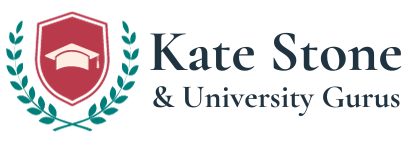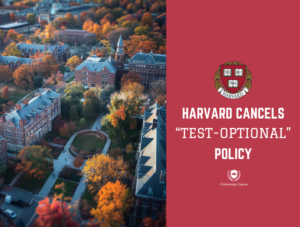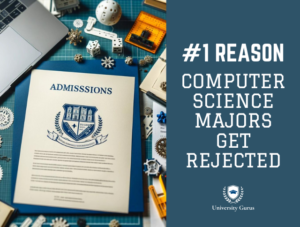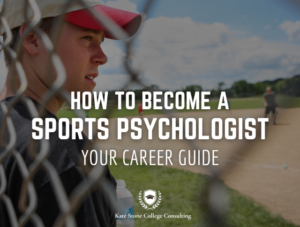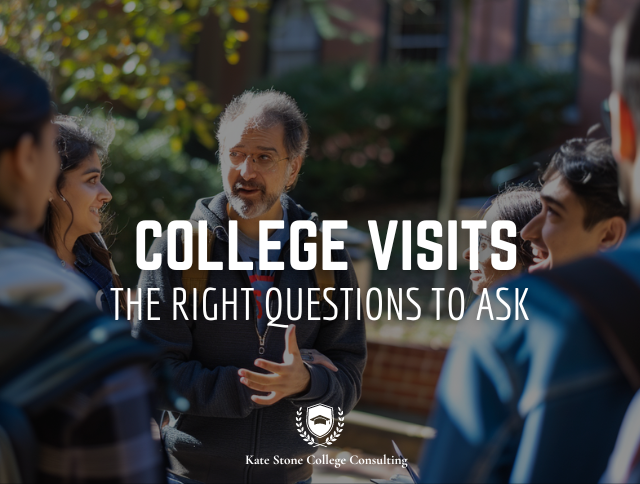
Embarking on a college tour can be both exhilarating and overwhelming. With so many aspects to consider, it’s crucial to arm yourself with the right questions that uncover the real character and offerings of a school.
Whether you’re a parent guiding your child through this significant phase or a student eager to find your perfect college match, knowing what to ask can dramatically steer your decision-making process.
Here, we present an authoritative guide designed to help you maximize your college tours and see beyond the glossy brochures and scripted tours.
Why These Questions Matter
Choosing a college is a monumental decision, and it’s about more than just academic reputation or financial considerations. It’s about finding a community where you or your child will thrive, grow, and succeed.
Each question in our list is crafted to peel back the layers of surface appearances, diving deep into the academic environment, campus life, career preparation, and much more. By asking the right questions, you can gauge whether a college will not only meet educational goals but also provide the supportive, enriching environment that is crucial for student success.
Understanding Good Questions vs. Bad Questions on College Tours
When touring colleges, the quality of the questions you ask can significantly influence the information you gather, helping you make a more informed decision. It’s important to craft questions that are insightful, provoke meaningful responses, and uncover deeper truths about the institution. Here’s how to distinguish between good and bad questions:
Characteristics of Good Questions
Open-Ended Questions: Good questions are typically open-ended rather than yes/no inquiries. They encourage detailed responses and discussion, which provide richer, more nuanced insights.
Example: “How would you describe the student culture and community engagement here?” This question invites a detailed description and personal anecdotes, offering a deeper understanding of campus life.
Specific and Purposeful Questions: Effective questions are specific and aim to uncover information not readily available on the website or in promotional materials.
Example: “What opportunities are available for undergraduate research in the Biology department?” This directly targets specific opportunities within a context that interests you.
Forward-Looking Questions: Questions that inquire about future developments, strategic plans, or upcoming changes can provide insights into the institution’s growth and direction.
Example: “What future developments or enhancements are planned for the academic programs here?”
Personal Experience-Based Questions: Asking current students or faculty about their personal experiences can yield authentic insights and help gauge the real atmosphere and day-to-day life at the college.
Example: “Could you share a personal story about how a faculty member has positively influenced your college journey?”
Characteristics of Bad Questions
Readily Available Information: Questions whose answers can easily be found on the college’s website or in its brochures are less valuable and can waste precious face-to-face time.
Bad Example: “What majors do you offer?” This information is typically detailed extensively on the institution’s official website.
Overly Broad and Non-Specific: Vague questions can lead to generic answers that don’t provide actionable insights.
Bad Example: “Is this a good school?” Such a question is subjective and too broad, likely leading to a rehearsed or promotional response.
Hypotheticals Unrelated to Policies or Programs: Questions that ask respondents to speculate on situations outside established programs or policies might lead to conjecture rather than facts.
Bad Example: “What would happen if I missed a semester?” Responses might vary widely and not reflect official policy accurately.
Very Personal or Inappropriate: Questions that probe into overly personal areas or that may seem judgmental can be uncomfortable and are unlikely to yield useful information.
Bad Example: “What political affiliations do most students have here?” This can put the respondent on the spot and is not relevant to the educational value of the institution.
Crafting Your Questions
When preparing your questions for a college tour, focus on what will help you or your child succeed and thrive at the college. Aim for questions that engage the respondent, provide insights into the academic and social environment, and reveal the college’s stance on issues important to you. Avoid questions that might make your interaction less productive or that could be answered with a simple online search.
By distinguishing between good and bad questions, you can maximize the effectiveness of your college tour, ensuring that you gather valuable insights that help in making the best decision for your future.
Academic Environment
Academics are the cornerstone of the college experience. Asking about the strength of academic programs, the qualifications of the faculty, and the available academic resources helps you understand the intellectual climate you or your child will be entering. These questions aim to uncover the depth of the curriculum, the accessibility of professors, and the support systems in place for student success.
- What sets the academic programs here apart as being exceptionally strong?
- Could you describe the nature of student-faculty interactions at this college?
- In the early years of college, who primarily conducts the classes—professors or assistants?
- What’s the typical size of introductory classes compared to those in upper-level courses?
- How does the institution support students academically outside the traditional classroom setting?
- Are there opportunities for undergraduates to engage in research? How can they get involved?
- How flexible are the academic programs if a student wishes to pursue interdisciplinary studies or change their major?
- Can you talk about a specific project or course that has significantly impacted your education?
Campus Life
The campus environment plays a pivotal role in shaping a student’s college experience. These questions are designed to give you a sense of how students interact, the vibrancy of campus culture, and the quality of life outside the classroom. From housing to social activities, understanding the daily life of students helps paint a comprehensive picture of what to expect.
- How would you characterize the student culture and social atmosphere here?
- Which student organizations or extracurricular activities draw the most participation?
- How do students manage the balance between academic demands and social life?
- What are the living arrangements on campus, and how do students select their housing?
- How does the food service cater to various dietary needs and preferences?
- What activities are most common among students during weekends?
- What are some key traditions or annual events that shape the student experience?
- In what ways does the college cultivate a community feeling among its students?
Career Preparation
Career services and opportunities for professional development can significantly impact a student’s post-college success. This section’s questions help you assess how well a college prepares students for the workforce, including the availability of internships, the effectiveness of the career center, and networking opportunities with alumni.
- What internship or co-operative education opportunities does the college offer?
- How do the career services at the college prepare students for employment after graduation?
- Within six months of graduation, what proportion of students secure jobs in their chosen fields?
- Does the college have a strong alumni network or mentorship programs?
Financial Aspects
College is a major investment. These questions delve into the financial commitments associated with attending a college, exploring topics such as financial aid, scholarship opportunities, and the overall value of the education received. Understanding the cost and available financial support is crucial for making an informed decision.
- What proportion of the student body receives financial aid, and how does this influence the overall cost?
- How well does the college meet the demonstrated financial needs of its students?
- Are there unique financial aid options or scholarship programs available?
- Do external scholarships reduce the financial aid provided by the college?
Student Support and Services
A supportive campus infrastructure is essential for student well-being. This section includes questions about the health services, counseling availability, and additional support structures that contribute to a nurturing environment conducive to academic and personal growth.
- What resources are available for student health and mental well-being?
- What are the accessibility and availability of health services, including mental health support?
- What facilities and support services are offered to students with disabilities?
- How does the college ensure the safety and security of its students?
Admissions Criteria and Institutional Priorities
Knowing a college’s admissions criteria and what they value in their students can give you insights into their educational philosophy and institutional goals. These questions will help you understand the admissions process and what the college considers important in prospective students.
- Which factors are considered most critical by the admissions office?
- How significant is demonstrated interest in the admissions process?
- Are there specific groups that receive special consideration in the admissions process?
- What encompasses the holistic review process in admissions at this college?
Diversity and Inclusion
Diversity and inclusion on campus enrich the educational experience by exposing students to a wide range of perspectives and fostering a welcoming environment. This section explores the college’s commitment to supporting a diverse student body and promoting inclusivity.
- Can you describe the diversity of the student population and the college’s initiatives for inclusivity?
- How does the college handle diversity and inclusion within both the curriculum and student life?
- What kind of support does the college offer to international students and students from diverse backgrounds?
Technology and Facilities
Modern educational facilities and technological resources can enhance the learning experience. These questions aim to evaluate the college’s infrastructure and its ability to provide students with the tools they need to succeed academically and personally.
- How equipped are the technological facilities, such as computer labs and academic equipment?
- Are the learning and living spaces modernized to support current technological needs?
- In what ways does the college integrate modern technology into both educational and extracurricular activities?
Strategic Questions
The strategic direction and ongoing initiatives of a college can indicate its future trajectory and the potential for growth and improvement. These questions probe into how the college plans to evolve and address current and future challenges.
- If there were one aspect you could change about this college, what would it be?
- How has the college adapted to significant global challenges, like the COVID-19 pandemic?
- What current challenges is the college facing, and what are the strategies for addressing them?
- What future developments or enhancements are planned at the college?
Personal Experiences
Personal stories and experiences provide the most genuine insights into life at a college. These questions seek to draw out narratives from current students about their experiences, offering a window into the real student life that awaits.
- Could you share a personal story about how a faculty member has positively influenced your college journey?
- What has been your most challenging experience at this college, and how did you manage it?
- What were the key factors that led you to choose this college over others?
- What advice would you give to a prospective student looking at this college?
- How supportive has the college administration been during times of personal difficulties?
- How do you balance academic responsibilities with your personal life?
- Before starting college here, what is one thing you wish you had known?
- What has been the most memorable part of your college experience so far?
Our Top 3 Essential Questions and Why They Matter
Navigating a college tour can often feel overwhelming, especially when armed with a lengthy list of potential questions. While it’s beneficial to be thorough, it’s usually impractical to explore every query in a single visit.
If you’re pressed for time but still want to gain deep insights into what a college truly offers, focusing on a few pivotal questions can be incredibly revealing. Here are our top three recommended questions to prioritize on your college tour.
These are designed not only to maximize your visit time but also to provide a broad yet detailed understanding of the school’s environment, directly from the experiences of those who know it best.
1. Impactful Faculty Interactions
Can you name a faculty member who has made a significant impact on you, and how did they support your academic and personal growth?
The relationships you build with faculty can significantly influence your college experience and beyond. This question isn’t just about ensuring that you’ll have access to knowledgeable professionals but about discovering whether faculty members are truly invested in their students’ success. Positive responses can indicate a supportive environment where faculty mentorship is a priority, providing both academic and personal growth opportunities.
2. Comprehensive Support Systems
How does the college support students who are struggling academically or personally? Are there specific programs or resources?
College can present a myriad of challenges, from rigorous academic demands to personal adjustments. Understanding the support systems in place is crucial. This question helps gauge the institution’s commitment to student welfare and success. Colleges that offer robust support systems demonstrate their dedication to the holistic development of their students, ensuring that help is available whenever needed.
3. The Real Student Experience
Describe a day in the life of a typical student here. What balance between academic and social activities do students tend to strike?
Why it matters: Getting a feel for the daily life of students can provide a realistic view of what to expect from the college. This question sheds light on how students manage their time between studies and leisure, offering insights into the school’s cultural atmosphere and social dynamics. It helps prospective students understand if they can see themselves fitting into the lifestyle and pace of the campus.
Conclusion
Visiting a college is more than just a tour; it’s a step into a potential future. Armed with these questions, you can uncover the truths that brochures might gloss over, ensuring you choose a college that not only meets educational expectations but also supports a thriving, dynamic student experience.
Remember, the right questions don’t just seek answers—they invite insights that reveal the heart of a college’s community and values.
Are you ready to take the next step in your college journey with confidence? Reach out today to learn how our expert-guided college tours can offer you a deeper, more personalized experience.
